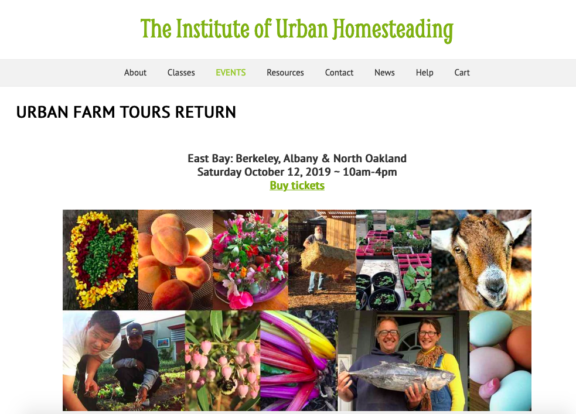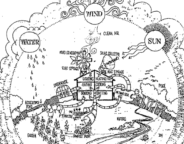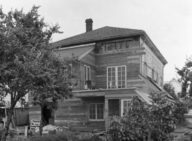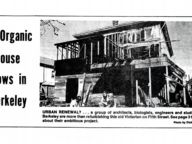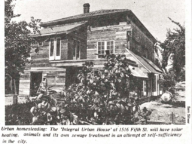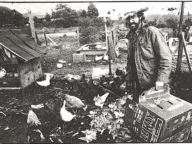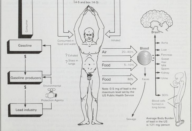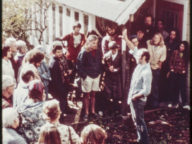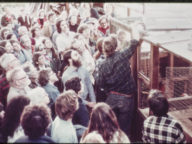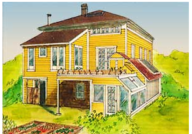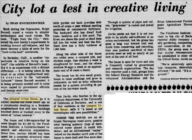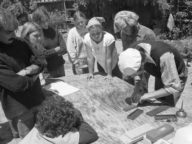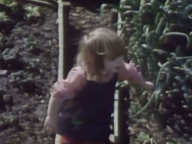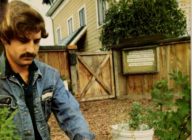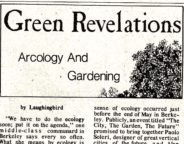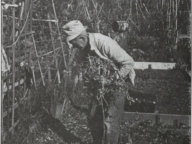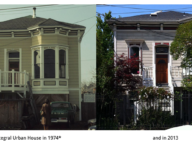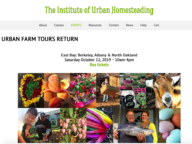Although the Integral Urban House dissolved in 1984, the ideas it generated and the spirit it possessed continue to live on in the East Bay. A temperate Mediterranean climate and affinity for the environment compels residents to take up urban gardening and other means of self-reliance.
Today, organizations like The Institute of Urban Homesteading offer tours of urban farms across the East Bay. Founded in 2008, the Institute seeks to inspire and “enable a slower, more intentional, more sustainable lifestyle”. They offer classes in foraging, fermentation, orchard pruning, and much more. Through this, they hope to retain the important skill of gardening and traditional handiwork. And coincidentally, it shares the same initials as “Integral Urban House” (IUH)!
Plots ranging from a 1,200 square feet at the Berkeley Basket in Northwest Berkeley to the 2 acre UC Gill Tract in Albany provide fresh produce and a sense of community to nearby residents. Organizations like the Berkeley Food Institute conduct research and provide resources on access to safe, nutritious food in the East Bay.
Institutions on the UC Berkeley campus, such as the Student Organic Garden on Northside and the Clark Kerr and Brown’s Cafe HADSA Gardens, are committed to serving student populations on campus.
Many urban farms have also grown out of other social movements, such as Black Earth Farms and Sogorea Te’ Land Trust. Both focus on African-Indigenous farming practices and regenerate former ancestral connections to the land.
Alternative food sources, such as consuming insects, are farmed in places like Don Bugito, a small farm housed in a converted shipping container located in Oakland’s O2 Artisans’ Collective.
Urban farms with permaculture design services can also be found in the East Bay, such as Earthly Arts in Berkeley and Soul Flower Farm in El Sobrante.
Following the pedagogic mission of the Integral Urban House, the Victory Garden at Hoover Elementary School in Oakland, as well as Planting Justice, are focused on healing and food sovereignty through urban agriculture. The benefits of gardening extend beyond the physical products one can receive, and can empower communities to make healthy food decisions and connect with the environment.
Although the Integral Urban House project dissolved almost 40 years ago, the impact it left on the local community persists. The desire to connect with the natural world manifests in the entrepreneurial commitment to education and experimentation. From renewable energy technology projects at the university to an elementary school community garden in West Oakland, creating ways to improve urban living is embodied in the fabric of the East Bay. The urban farms mentioned in this post are the sprouts of the original seed planted by the back-to-the-land movement and the Integral Urban House. The spirit of urban homesteading and self-reliance in the city continues to live on in the East Bay’s committed residents.
